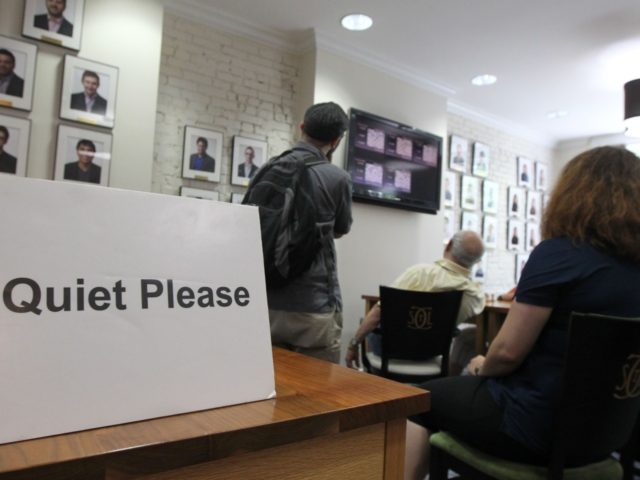WASHINGTON, DC – A company controlling access to public access television is not required to follow the First Amendment because it is not considered a government actor under the Constitution, a closely divided Supreme Court held on Monday.
Federal law authorizes “state and local governments to require cable operators to set aside channels on their cable systems for public access,” Justice Brett Kavanaugh wrote for the Supreme Court on Monday in one of the first 5-4 decisions by the Court’s newest justice. New York City has such a law, and when the corporation it tasked with running public access television refused to let some people on, they sued, alleging violation of free speech.
“The Free Speech Clause of the First Amendment constrains governmental actors and protects private actors,” the Court majority noted. “To draw the line between governmental and private, this Court applies what is known as the state-action doctrine. Under that doctrine, as relevant here, a private entity may be considered a state actor when it exercises a function ‘traditionally exclusively reserved to the State.’”
“Public access channels are available for private citizens to use,” Kavanaugh continued. “The public access channels on Time Warner’s cable system in Manhattan are operated by a private nonprofit corporation known as MNN. The question here is whether MNN—even though it is a private entity—nonetheless is a state actor when it operates the public access channels.”
Joined by Chief Justice John Roberts and Justices Clarence Thomas, Samuel Alito, and Neil Gorsuch, Kavanaugh cited a number of Supreme Court precedents, summarizing:
Under this Court’s cases, a private entity can qualify as a state actor in a few limited circumstances— including, for example, (i) when the private entity per- forms a traditional, exclusive public function; (ii) when the government compels the private entity to take a particular action; or (iii) when the government acts jointly with the private entity.
Applying that rule here, the Court held:
Under the state-action doctrine as it has been articulated and applied by our precedents, we conclude that operation of public access channels on a cable system is not a traditional, exclusive public function. Moreover, a private entity such as MNN who opens its property for speech by others is not transformed by that fact alone into a state actor. In operating the public access channels, MNN is a private actor, not a state actor, and MNN therefore is not subject to First Amendment constraints on its editorial discretion.
“Providing some kind of forum for speech is not an activity that only governmental entities have traditionally performed,” Kavanaugh continued in the 16-page majority opinion. “Therefore, a private entity who provides a forum for speech is not transformed by that fact alone into a state actor.”
Kavanaugh concluded:
It is sometimes said that the bigger the government, the smaller the individual. Consistent with the text of the Constitution, the state-action doctrine enforces a critical boundary between the government and the individual, and thereby protects a robust sphere of individual liberty. Expanding the state-action doctrine beyond its traditional boundaries would expand governmental control while restricting individual liberty and private enterprise. We decline to do so in this case.
Justice Sonia Sotomayor dissented, joined by Justices Ruth Bader Ginsburg, Stephen Breyer, and Elena Kagan.
The case is Manhattan Community Access Corp. v. Halleck, No. 17-1702 in the Supreme Court of the United States.
Ken Klukowski is senior legal analyst for Breitbart News. Follow him on Twitter @kenklukowski

COMMENTS
Please let us know if you're having issues with commenting.